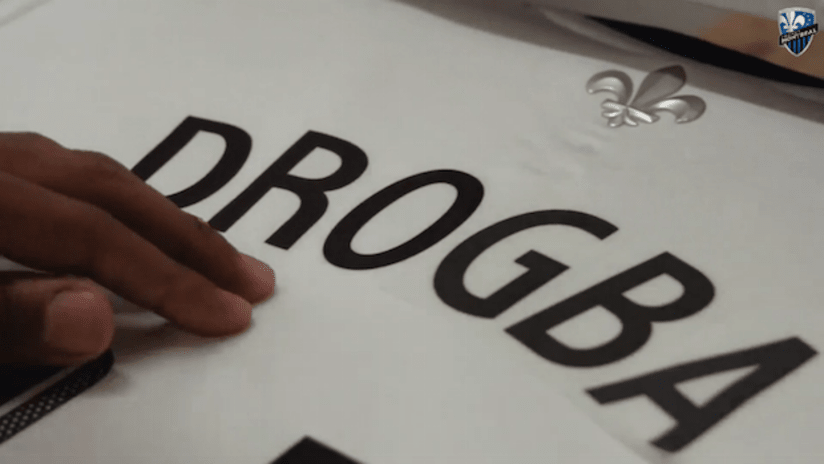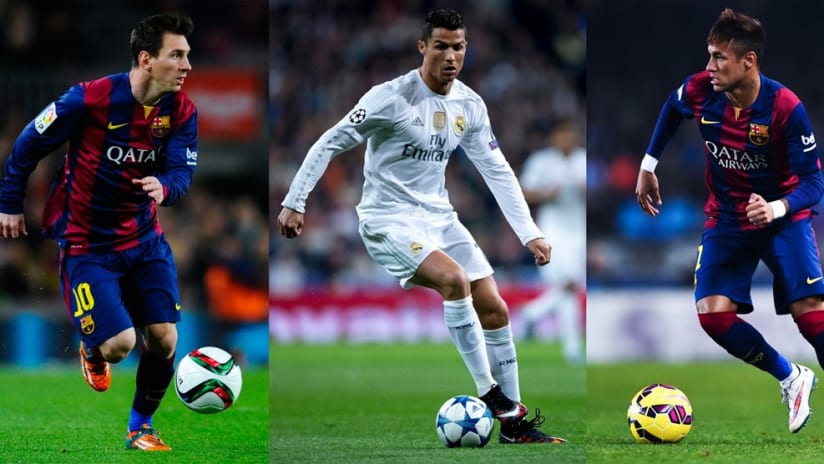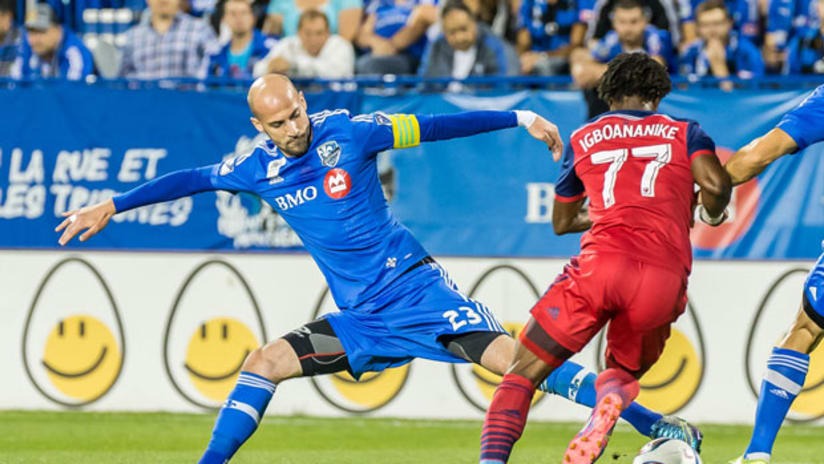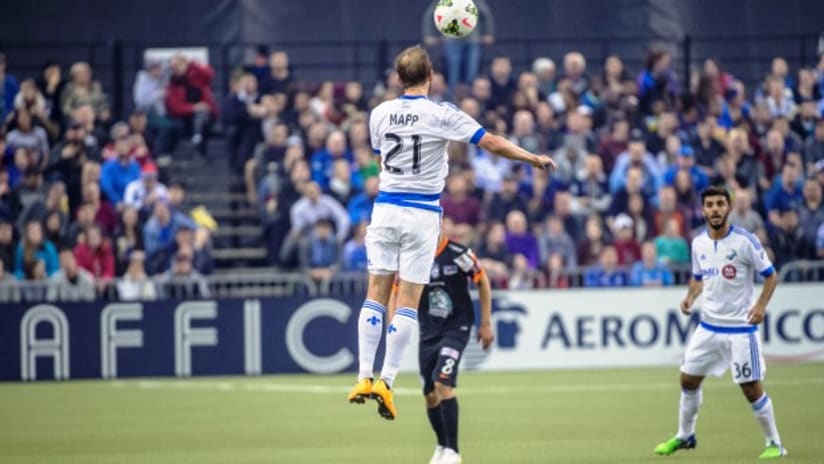MONTREAL – Wondering if the ‘Drogba effect’ is a thing? Look no further than last week’s Rogers Cup.
New Montreal Impact signing Didier Drogba took in a Friday session of the tennis tournament at Stade Uniprix, and the camera crew noticed.
Drogba, of course, appeared on the big screen. And Rick Moffat, the Impact’s play-by-play announcer on TSN Radio 690 and a longtime observer of the local sports scene, couldn’t have missed it from the press box.
“The crowd went ballistic – or, as I like to say now, Drogballistic. The crowd's going crazy,” Moffat told MLSsoccer.com.
Drogba was there again the next day rubbing shoulders with some of tennis’ biggest stars.
“In between his singles and doubles match, Novak Djokovic took a moment to pose for a photo with Didier Drogba," Moffat said. "And I’m like, ‘Holy [expletive], who does this guy not know?’”
The reaction supports the theory that Drogba is already the biggest name in Impact history, some ways ahead of Marco Di Vaio and Alessandro Nesta. It is fair to say, at least, that the Bleu-Blanc-Noir have never felt such an instant celebrity effect, which makes one ponder whether Drogba could be the biggest name to come to Montreal in its pro sports history.
There is a bit of a caveat to this hypothesis, however.
Montreal is unabashedly a hockey town, meaning there are some athletes beyond reproach, even for a Drogba. Maurice Richard and Jean Béliveau, for example, remain Québécois and Canadian heroes. They transcended their sport and remain equally respected by all, no matter the hometown, the language or the emotional connection to a team. Even David Beckham couldn’t dislodge “Magic” Johnson in Californian hearts. It is thus only fair to exclude Canada natives when putting Drogba into historical context.
Montreal has landed its fair share of marquee players over the years. The defunct Expos of Major League Baseball lined up legends such as Andre Dawson, Gary Carter, Randy Johnson and Pete Rose.
“But Pete Rose is infamous and notorious now [due to a betting scandal], where Didier Drogba is a United Nations development ambassador and peacemaker in his homeland,” said Moffat.
The list of Montreal Canadiens greats includes a reasonable amount of Americans and Europeans – your Chris Chelioses, Mats Näslunds and other Petr Svobodas. Moffat also recalls the 1972 Heisman Trophy-winning running back Johnny Rodgers snubbing the NFL and opting for the Canadian Football League's Montreal Alouettes for the first four years of a pro career that was cut short by injury.
Emmanuel Lapierre is a history professor at Montreal’s Conservatoire Lassalle. While his sports interests – both personal and professional – mostly lie within the hockey world and the importance of sport in society, he also got into soccer through FC Barcelona, where he’s noticed “unsettling” similarities with the Montreal Canadiens in terms of popularity, identity and success.
For him, the reaction that Drogba has produced since landing in Montreal on July 29 suggests that he could very well trump, in terms of popularity and importance, all those other sportsmen who chose to make Montreal their home in the past.
“Relatively speaking, we may be entering a new chapter, a transition where, perhaps, in the media and in the hearts of the people, soccer will play an increasingly bigger role,” Lapierre told MLSsoccer.com. “It’s too early to say if that’ll be at the expense of hockey – we’ve already seen hockey and baseball at equal popularity levels, and one wasn’t necessarily doing the other any harm. I feel like we’re entering something of a new era, and for sure, acquiring that player could become, down the line, a symbol of this new step in the Montreal sports scene.”
The shift is already noticeable. This Saturday, when Drogba makes his debut against the Philadelphia Union, Stade Saputo will host its first sellout crowd in almost two years.
Predicting the fanbase’s attachment to a player is difficult, Lapierre adds, because of the plethora of factors coming into play. But the French language, he says, could make the relationship between Drogba and the fans a genuine two-way street.
“A casual Montreal sports fan asked me this on the weekend: 'Do you think Didier Drogba is bigger than anybody else right now in the Montreal sports scene,'" Moffat said. “If you measure by Facebook likes or Twitter followers, he’s got to be bigger than any of the hockey players. We’re talking millions of followers. I think the Canadiens, as a franchise, might be over one million followers. Think about that. Think about one man who’s got 8 million likes on Facebook!”
Moffat is not willing to say that Drogba is bigger, in the city right now, than the current Canadiens stars, MVP goalkeeper Carey Price and All-Star defender P.K. Subban. But neither transcends his sport like Drogba does.
“It’s also the way people scream,” Moffat says. “When they saw his face on the big screen, there’s a certain pitch – it wasn’t just polite applause or cheering. There’s a certain scream that I hadn’t heard in soccer since Beckham. When Beckham took off his shirt after the game at the Big O back in 2012, it was that high-pitched squeal. It’s not just that [Drogba] is an amazing soccer star, a Chelsea star or a Côte d’Ivoire star. He’s a global celebrity.”
Commentary
The ‘Drogba Effect'




